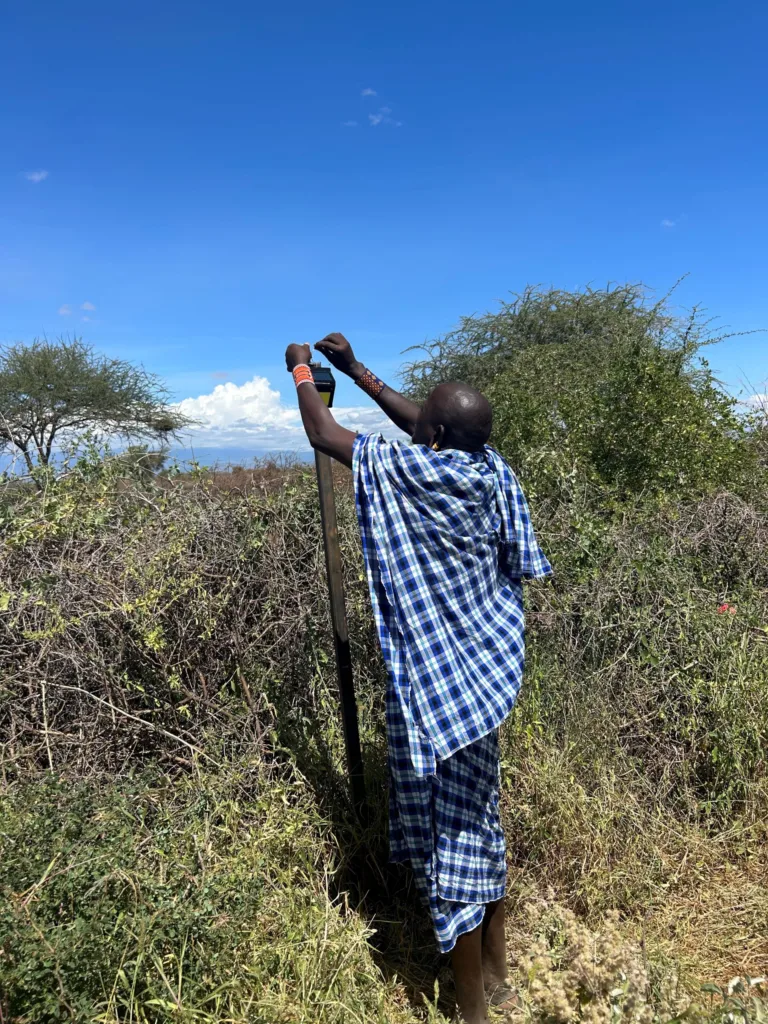Community Involvement in Costa Rica
Students in Costa Rica recently took a break from their academics to participate in two local service opportunities, both here at the SFS Center for Sustainable Development Studies and in the larger Atenas community. Students spent Tuesday morning working on the Center’s farm, helping with a variety of projects including weeding and maintaining our vegetable beds, turning the compost pile, and prepping land for a future butterfly garden. While it was hard and sweaty work on a very sunny morning, all the students applied themselves enthusiastically to their tasks and our farm staff certainly appreciated the extra hands!
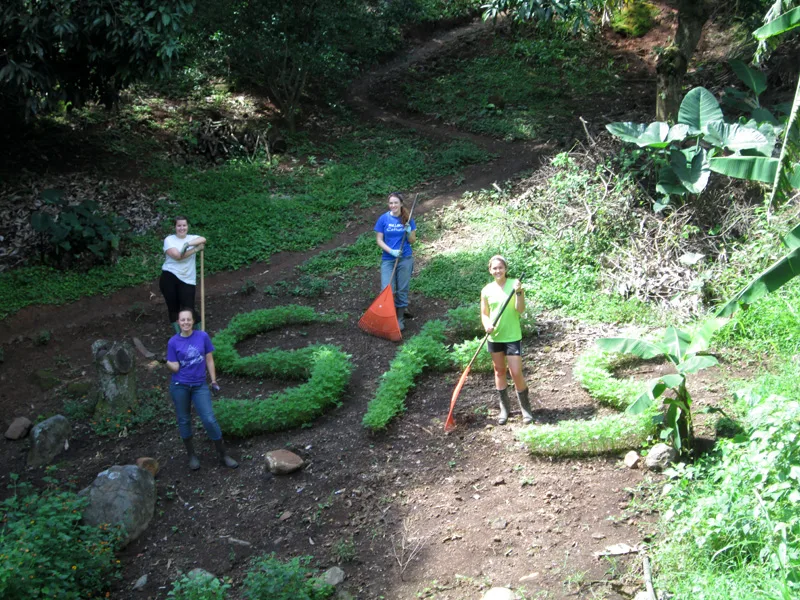
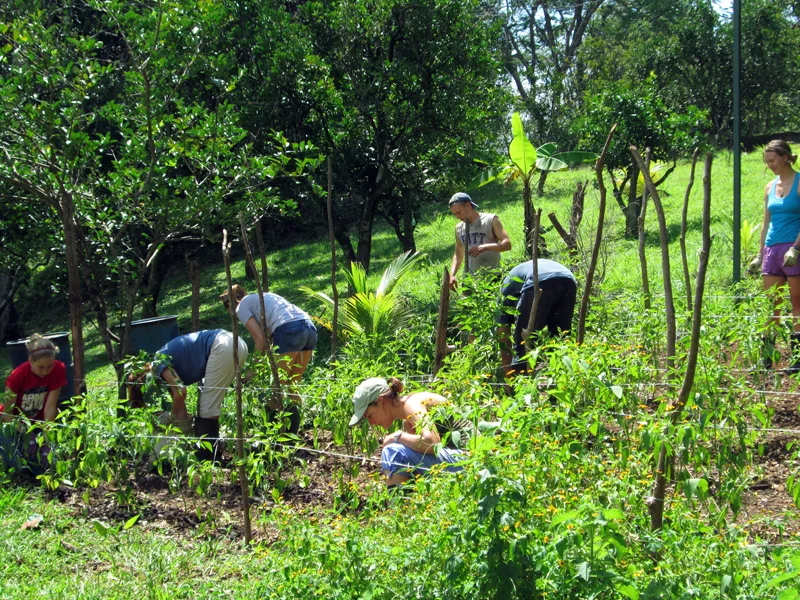
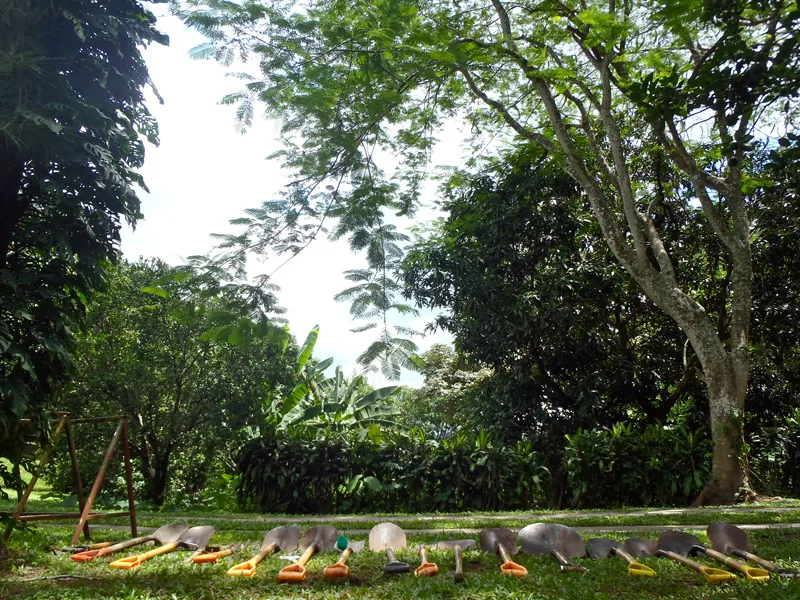
On Wednesday morning, students participated in the first of five outreach opportunities we have this semester. Everyone spread out across greater Atenas to provide much-appreciated assistance at a variety of local organizations. Projects included helping with general upkeep and programming at local nursing home El Hogar de Ancianos and at a local children’s home called El Hogar de Vida. Students also planted seeds and helped to maintain a kitchen garden at a local elementary school, and prepared land for a flower garden in front of the community center in our barrio of La Presa. In addition to formal outreach opportunities throughout the semester, students also participate in the social fabric of the community in a variety of ways, including their enthusiastic attendance at the local community center’s bi-weekly Zumba classes, community Bingo nights, and even their regular visits to the local pulpería (convince store).
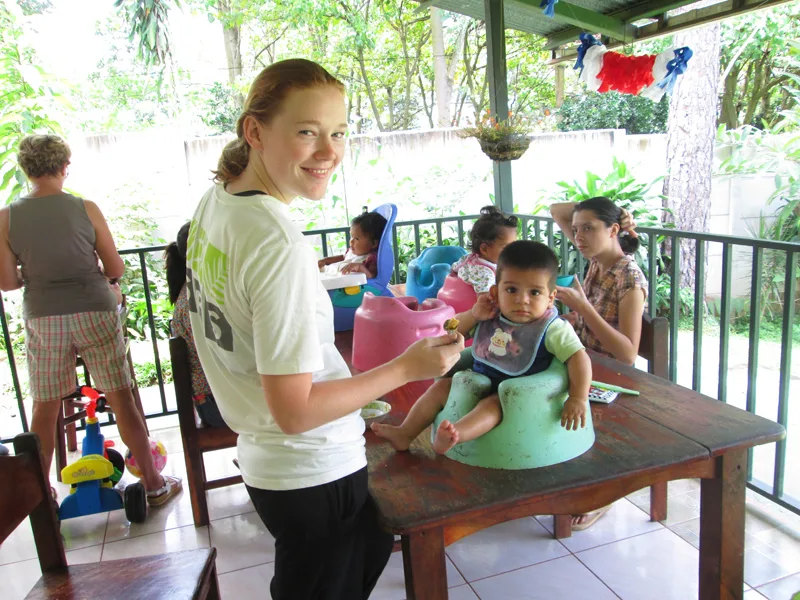
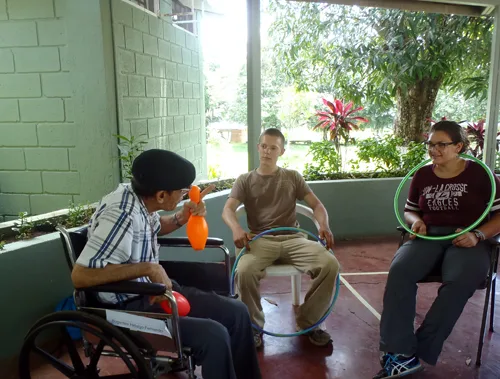
This coming weekend students will spend Saturday visiting with a local host family, an invaluable opportunity to experience a typical day in the life of a Costa Rican household. Students will then reciprocate by throwing a host family dinner, complete with a talent show and plenty of typical Costa Rican food! The outreach students participate in throughout the semester, both structured and more informal, not only provides much-needed and appreciated assistance to local organizations and allows for valuable cross-cultural exchange, but also strengthens the students’ ties to the community where they live and adds a human dimension to the sustainable development issues they learn about in their coursework.
Related Posts

Restoration on a Cinder Cone: A Syntropic Story
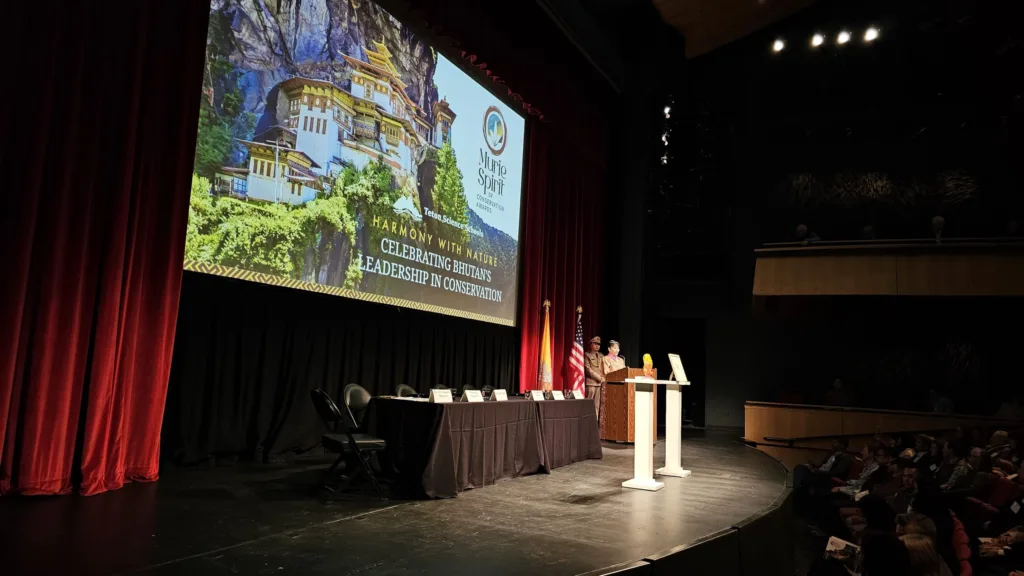
Bhutan Honored with the Murie Spirit of Conservation Award
